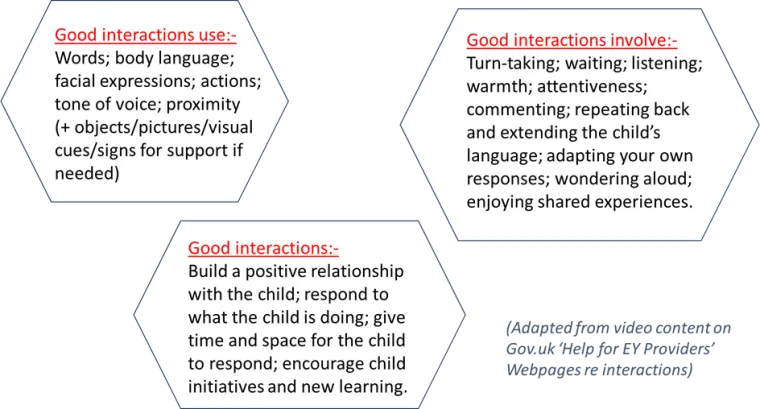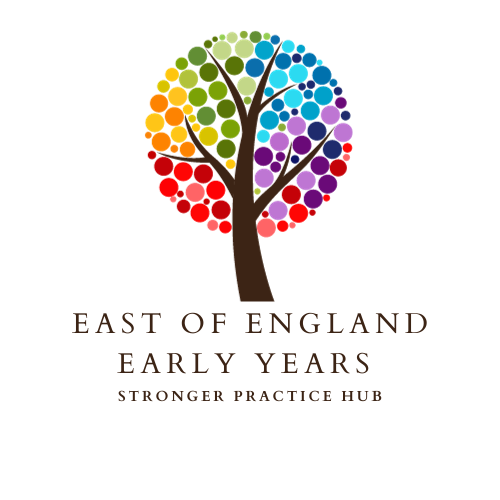Jannice Simpson is a member of the East of England Early Years Stronger Practice Hub team. Alongside this, she is also a Children’s Centre Manager and a VIG (Video Interactive Guidance) Supervisor.
What makes a good 'early interaction' important in the Early Years?
VERP (Video Enhanced Reflective Practice) describes an approach that promotes critical analysis, attuned communication and relationships, problem solving and creative thinking. It draws on worker knowledge and experience making the tacit explicit and thereby deepening and articulating personal and team knowledge, values and goals.
What does the research tell us? How can we change this for our setting?
“Consistent positive interactions foster positive wellbeing” (NCB)
“The quality of back-and-forth interactions with care givers is crucial to the development of language and cognitive development” (EYFS)
“Good interactions between adults and children make a big difference to how well communication and language skills develop” (GOV.uk Help for EY Providers webpages)
“Children’s language development benefits from approaches that support communication through talking and non-verbal expression” (The EEF Evidence Store)

What difference will this make to children in our settings?
The VERP session will:
1. Focus on encouraging approaches and practices that will help develop children’s language & communication skills and promote their well-being and pro-social behaviour.
2. Enhance practitioner’s awareness and understanding of how to communicate effectively and sensitively with young children, so that they are able to build on their ‘good interactions’ to help scaffold and guide children’s learning and better meet their emotional needs/promote their well-being.
3.Give time to share reflections on practice with colleagues (and the VERP guider) also builds self -confidence and a greater insight into the impact of their own behaviours on the children they care for.
4.Encourage more consistently attuned verbal and non-verbal interactions with adults. This should lead to improvements in social behaviour and self-regulation, as well as progress with their language/communication skills and overall learning.
5.Encourage approaches and practices that will help develop children’s language & communication skills and promote their well-being and pro-social behaviour.
“Research shows that if we can be more aware of our interaction habits, and tune in to what children need from us when we communicate with them, this will make a huge difference” (EYFS ‘GOV.uk Help for EY Providers’ video)
More consistently attuned verbal and non-verbal interactions with adults should lead to improvements in social behaviour and self-regulation, as well as progress with their language/communication skills and overall learning.
Feedback
"I feel my practice is more focused on each individual child."
"I would recommend the experience! Seeing myself on the video was so valuable and reassuring, it allowed me to see even the smallest interaction I didn’t realise, or notice happen in communicating."
"For the first time, I now see young children respond possibly more to our nonverbal communication, very powerful."
"The VERP project allowed and encouraged me ‘thinking and reflection time’, to focus on my own practice and this widened my understanding of the nonverbal communication that takes place in my interactions with the child. Great course would highly recommend."
